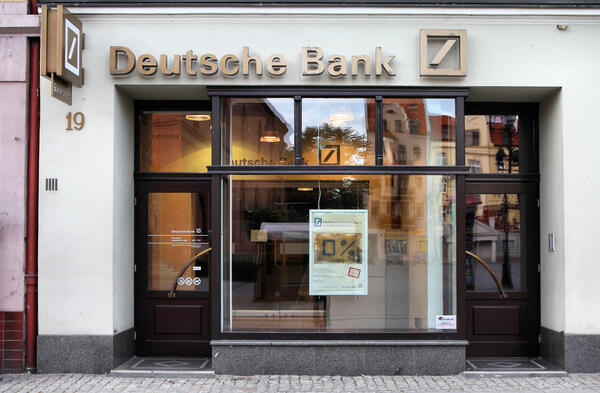A former Deutsche Bank employee was sentenced to three years in jail on Monday for his part in a scheme trading carbon emission permits designed to curb global warming but used to fraudulently collect tens of millions of euros of sales tax.
Handing down suspended jail sentences to five other former Deutsche bankers also involved, Judge Martin Bach criticized Germany’s largest bank, saying the “failure of all security mechanisms” had allowed the fraud.
The case stems from an investigation into so-called carousel trades in the European Union’s carbon market in 2009 and 2010, in which some buyers imported emissions permits into one EU country without paying value-added tax (VAT).
The buyers sold the permits designed to put a price on pollution to each other, adding VAT to the price and generating tax refunds when no tax had been paid.
European police agency Europol has estimated the cost to taxpayers at more than 5 billion euros ($5.64 billion) since 2008.
Helmut Hohnholz, formerly a regional sales manager with Deutsche’s global markets division, received the toughest penalty of the seven bankers on trial in the German court.
Bach accused the 55-year-old banker of ignoring all question marks over the scheme.
The banker, who had coordinated the trading of carbon emissions in Germany for Deutsche, was “the culprit, not the helper” in collecting 145 million euros of taxes, the judge said.
Hohnholz’s lawyer said that he would appeal the verdict.
Bach said that the scheme had been run purely to trick the tax authorities out of a total of 220 million euros.
Following a years-long probe that involved trawling millions of emails and thousands of recorded telephone conversations, the judgment was more lenient than the longer jail terms demanded by state prosecutors.
Of the seven former Deutsche Bank employees on trial in Frankfurt, five were given suspended jail terms of between one and two years on Monday for assisting in the tax fraud. One received a reprimand only.
Responding to the verdict, Deutsche Bank said that it had repaid the tax, changed its internal processes and parted with the staff involved.
Under new Chief Executive John Cryan, Deutsche is undergoing deep restructuring, hamstrung by having to pay out billions of dollars of fines to end a slew of legal rows.
Source: REUTERS











